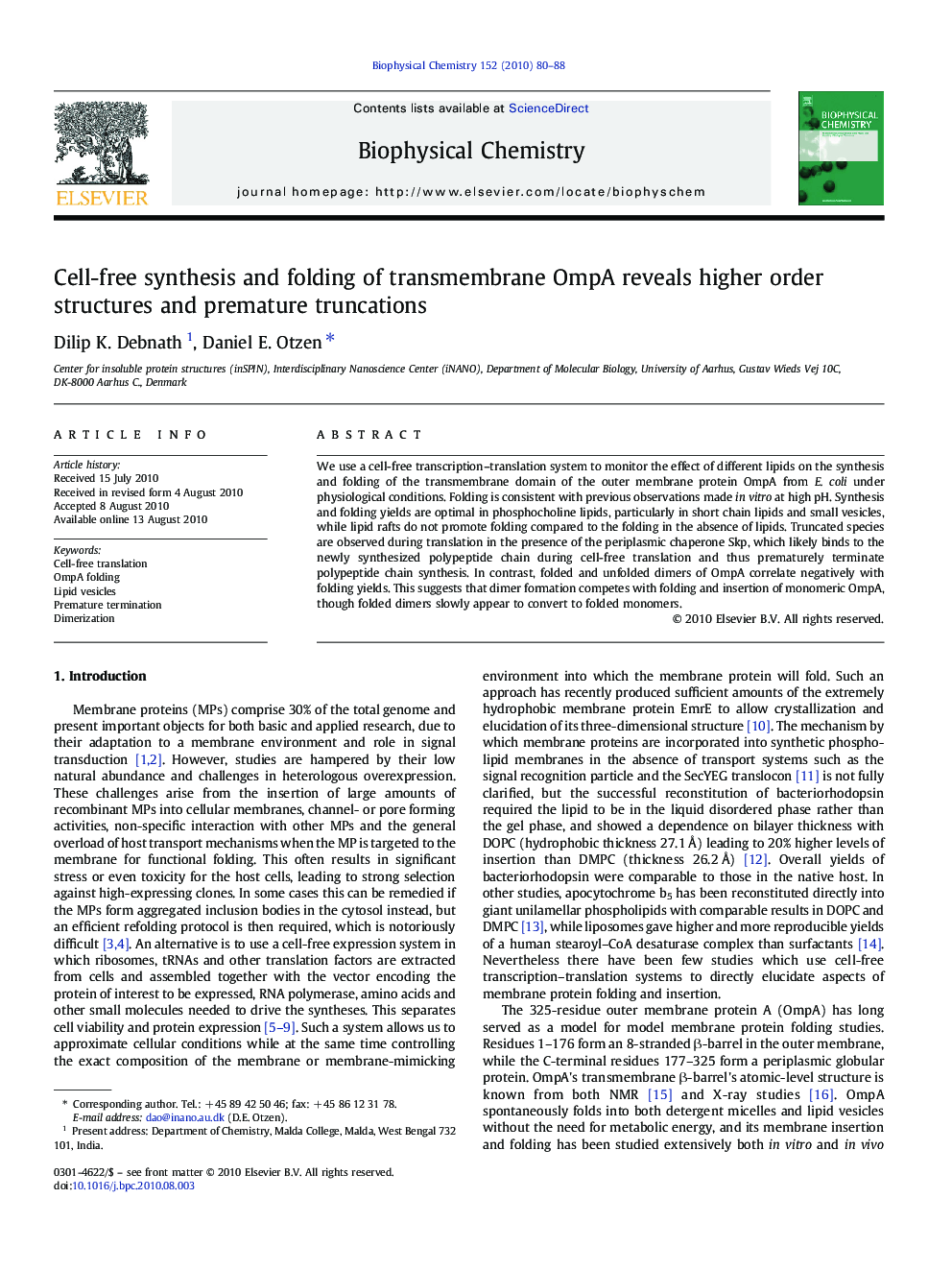| Article ID | Journal | Published Year | Pages | File Type |
|---|---|---|---|---|
| 5371478 | Biophysical Chemistry | 2010 | 9 Pages |
We use a cell-free transcription-translation system to monitor the effect of different lipids on the synthesis and folding of the transmembrane domain of the outer membrane protein OmpA from E. coli under physiological conditions. Folding is consistent with previous observations made in vitro at high pH. Synthesis and folding yields are optimal in phosphocholine lipids, particularly in short chain lipids and small vesicles, while lipid rafts do not promote folding compared to the folding in the absence of lipids. Truncated species are observed during translation in the presence of the periplasmic chaperone Skp, which likely binds to the newly synthesized polypeptide chain during cell-free translation and thus prematurely terminate polypeptide chain synthesis. In contrast, folded and unfolded dimers of OmpA correlate negatively with folding yields. This suggests that dimer formation competes with folding and insertion of monomeric OmpA, though folded dimers slowly appear to convert to folded monomers.
Graphical AbstractDownload full-size imageResearch HighlightsâºCell-free transcription and translation of OmpA leads to species of different lengths. âºDimers are observed in competition with folded monomers. âºTruncated species are formed particularly in the presence of periplasmic chaperones. âºThe gel phase inhibits synthesis but not folding percentages.
